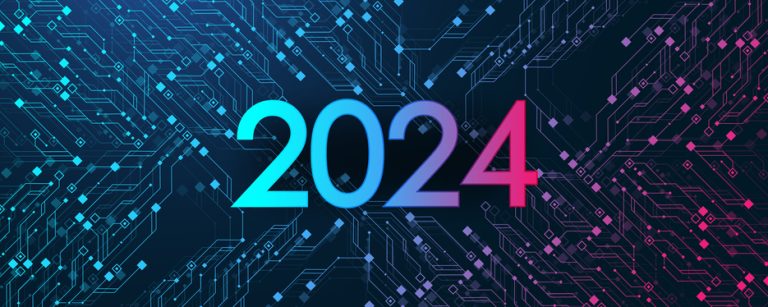Written by Rahul Rahai
As we enter 2024, the HR landscape is witnessing major transformations driven by continued technological development. Organizations are redefining their ways by incorporating cutting-edge HR technologies to enhance employee experience, support diversity and inclusion, and remain competitive in the talent market. The global HR technology market, valued at US$2,389.0 million in 2021, is expected to grow significantly at a CAGR of 7.18%, to reach US$3,621.0 million by 2027. This expansion highlights the crucial role it plays HR technology shaping the future workplace.
Let's dive into the top four HR technology trends that will shape the industry in 2024.
Revolutionizing HR: The Impact of Generative AI:
Generative AI is revolutionizing HR and talent management by automating tasks and improving processes, including performance management, employee engagement and recruitment. In addressing talent supply chain challenges, AI, especially generative algorithms, plays a critical role by enhancing candidate matching, reducing hiring bias, and tailoring skill improvement through personalized learning. It also improves talent deployment through predictive analytics, helping organizations proactively meet evolving needs. Furthermore, the impact of AI on contextual learning is clear, as AI-driven recommendations facilitate goal-directed learning experiences. Additionally, in the field of HR innovation, AI enhances the accuracy of prediction of relevant metrics, enabling proactive measures that keep organizations ahead of the curve. Furthermore, the impact of AI on total rewards is notable, as it allocates rewards based on guilds or communities of interest, increasing the value and impact of investments. However, ethical considerations are paramount to ensure responsible, people-centric use of generative AI, and to foster trust between employees, candidates and clients.
Adopting cloud-based HR systems
The rise in adoption of cloud-based HR systems is more than just a passing trend; It points to the future of organizational scalability. In 2024, this adoption is expected to rise, providing organizations with the means to streamline operations, enhance collaboration, and seamlessly adapt to evolving business environments. Beyond efficiency, these systems brilliantly address distinct business challenges, covering everything from talent acquisition to performance management and employee development. They herald a seamless and innovative era in HR management, providing essential tools for organizations to thrive in an era where digital transformation is crucial. In addition, these systems are poised to offer more comprehensive and integrated cloud solutions, covering the entire employee lifecycle from recruitment to retirement.
Blockchain for HR data security:
As concerns about data security continue to grow, blockchain technology is set to play a pivotal role in protecting sensitive HR information. Blockchain technology ensures that employee data records are kept secure, transparent and tamper-proof, from recruitment to performance appraisals. It not only enhances data security but also enhances trust among employees regarding the confidentiality of their personal and professional information.
Data-Driven Dubai Islamic Bank (Diversity, Equity, Inclusion and Belonging)
In 2024, there is a notable trend in HR technology focusing on robust, data-driven approaches to Diversity, Equity, Inclusion, and Belonging (DEIB). Despite a decade of focus on diversity, organizations have been challenged by initiatives that lack sufficient data to conduct meaningful analysis. HR technology is increasingly integrating data analytics into policies and practices to strengthen DEIB. This shift is critical to gaining actionable insights and ensuring the success of diversity initiatives. With a large number of employees expressing their preference for hybrid working, the trend involves implementing practical measures through effective technology-enabled systems. These systems cover various HR processes, including sourcing, recruiting, onboarding, employee engagement, grievance redress, and policy formulation, reflecting a comprehensive approach to promoting diversity and inclusion in an evolving workplace landscape.
In essence, 2024 represents an exciting era for HR technology, as these trends redefine how organizations manage their HR. Embracing these innovations will not only streamline HR processes, but will also help build a stronger, more engaged, and future-ready workforce. Staying ahead of these developments in the dynamic HR technology landscape will be critical to unleashing the full potential of organizations' most valuable assets – their employees.

(The author is Rahul Rahai, SVP, Present, Virtusa, and the views expressed in this article are his own)

